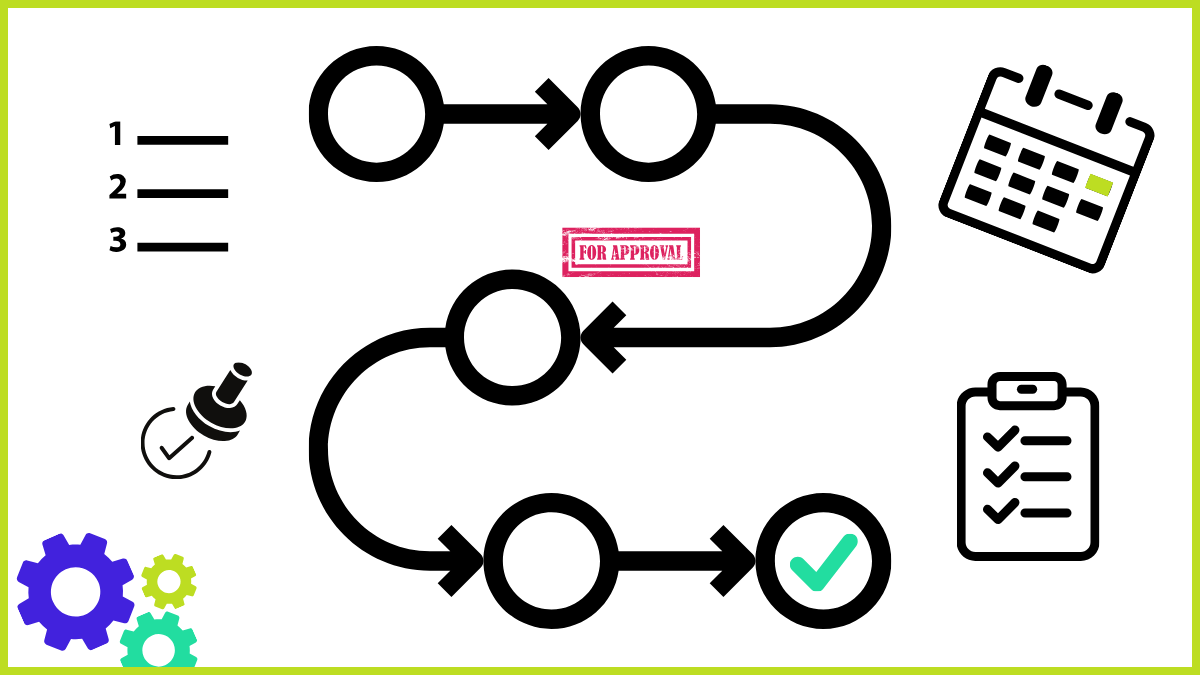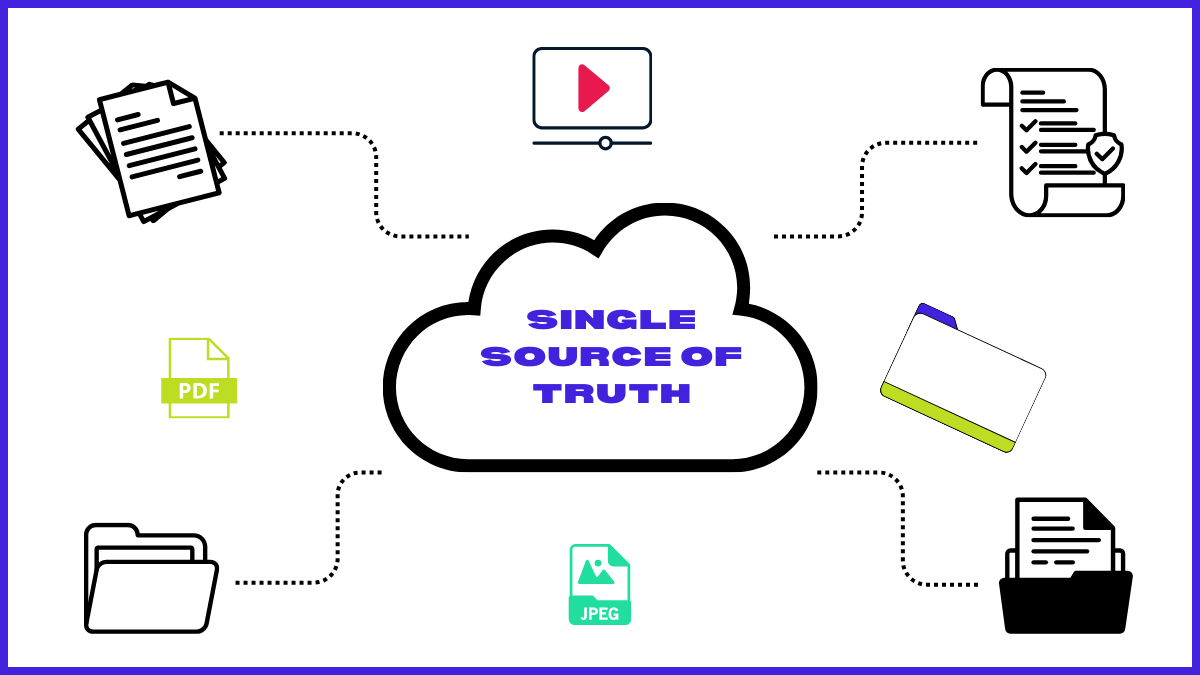15 warning signs your operations could hold back growth
Businesses today face challenges and changes like never before. Operations, as the backbone of any organisation, play a vital role in not just managing these hurdles and shifts but embracing them to drive the business forward. With this in mind, every Operations leader should regularly ask themselves: ‘Are our operations truly optimised to keep the business moving forward and growing? What more can we do to make them stronger and better?’ And trust me, there’s always plenty to do.
There are several warning signs that could indicate your operations aren’t as efficient as you might think. And in this article, I’ll walk you through 15 of these signs. Not only should you learn to spot them and take action quickly, but you should also get your team involved. Educate them about these warning signs and empower them to raise concerns and identify areas for improvement. By involving your team, you’ll create operations advocates who are just as committed to maintaining healthy, efficient operations as you are. And isn’t that the dream (and the goal) of every forward-thinking company?
Happy learning!
Customer complaints
This one shouldn’t shock anyone. A complaint here and there isn’t ideal, but hey, it happens to the best of us. But what if complaints start piling up? Well, it’s a clear sign that something is seriously off with your product or service delivery. Is the product the problem? Are processes falling short? Maybe more training is needed? Perhaps something else? The Ops team should play a vital role in identifying the root causes of client dissatisfaction and coming up with solutions to address them. It’s a task you want to get to quickly because your reputation is everything, and dissatisfied clients may share their bad experiences with others, costing you valuable business. And if it’s just one complaint, I’d still never ignore it. I’d speak with the client to understand what caused their dissatisfaction, because every piece of feedback matters, and you never know what you might learn from it.
Centralised decision-making
How empowered is your team to make decisions? If every decision has to go through senior leadership, then your process is very centralised and that’s a disadvantage. Why, you may ask. Firstly, senior roles come with packed schedules and big responsibilities. What's essential at the team level might not seem as pressing to senior leaders, who are juggling many critical tasks. The result is usually longer decision-making, which can negatively impact your business performance, as well as satisfaction levels among both clients and team members.
Also, think about whether involving senior leaders in every decision is really the best use of their time. Do they need to pick out new software for the development team? Approve every holiday request? Weigh in on website designs? Probably not! Their focus should be on strategic tasks. I'm sure you have plenty of talent in your team who are closer to the work and better suited to making decisions than senior leaders. Why not leverage that? If you’re still not convinced, here’s one more reason: centralised decision-making just doesn’t scale. As your business grows, you’ll need team members who can make decisions confidently and take ownership at every level.
Embedding decentralised decision-making into your company's culture will pay off in the long run, I guarantee! Just remember that decision-making authority should always align with the level of impact: less senior team members should handle decisions within their roles and responsibilities, while more crucial calls should go to higher levels.
Lack of core processes
Can a business function without core processes? Sure, at least for a bit. But can it really thrive? Absolutely not! Think about the basics like invoicing, onboarding clients or managing system access. What happens if those processes are not clearly defined and documented? You leave everything open to interpretation, and that’s where things can go sideways fast. Crucial steps might get skipped, forgotten, or poorly executed. Mistakes are likely to increase, while accountability drops (cue: the classic “I didn’t know I was supposed to do that!” excuse). Team members may be getting distracted from work by frequent help requests. These are already good reasons to ensure your core processes are in place and well-documented, but also remember that without them, your business will struggle to scale.
Low staff retention
People leave jobs sometimes. That’s normal. But when team members head for the exit repeatedly, it’s more than just bad luck; it’s a red flag. What could drive high numbers of team members to leave? It could be the work environment, management practices, processes, resource allocation, communication, or something else. All of these are fundamental aspects of your business and they all link back to operations.
Frequent departures almost always signal deeper issues within an organisation. If left unaddressed, these can impact team morale, customer satisfaction, and the business's ability to grow and achieve its goals. Remember, people don’t leave without a reason, so it's important to always find out what that reason is and look for any patterns.
Poor information flow
Ever had to deal with a frustrated client expecting an update because they called in and asked someone to pass along a message, but it never reached you? Or maybe you found out about changes to the holiday policy by accident because it was only communicated to managers and yours just happened to forget to inform you? How about starting a project with conflicting information from different sources?
These are all classic examples of poor information flow and there are many, many more. When information doesn’t move smoothly within an organisation, it disrupts day-to-day operations, causing delays, errors, miscommunication and even conflicts. Over time, these issues result in higher costs, reduced productivity, and lower customer satisfaction, all of which can undermine the business's effectiveness and hinder growth. So, you need to evaluate whether the communication channels in your organisation are clear and allow your team to access and share information easily.
Lack of documentation
Imagine a scenario where essential business information remains undocumented. Your financial procedures exist only as verbal agreements; new client information is shared informally during meetings; new employee setup is handled solely by Tom, who knows the process well but has not documented it. And so on … If you (or anyone on the team) ever have to jump in to handle an urgent task in one of these areas, you’ll need to find people with the necessary knowledge, hope they’re available, and then wait for them to explain everything. That could take much longer than it would if proper documentation were available. And what if (heaven forbid) only one person, like Tom from our example, holds that critical knowledge? If they suddenly become unavailable, it could severely disrupt operations and expose the organisation to expensive downtime. Can any business afford to take such huge risks?
Documenting core information is simply non-negotiable for business resilience and efficiency. You should aim to build a centralised repository to store all essential business information. It ensures transparency and reliability.
Not maximising technology
In today’s workplace, there’s no room for outdated technology. I think we can all agree on that. Running old operating systems, using unsupported software, or sticking with on-premise storage leaves your systems vulnerable to security threats. It’s like sitting on a ticking time bomb - you never know when it’s going to explode, but the consequences could be catastrophic.
But keeping your technology up to date isn’t enough. You need to maximise its potential within your organisation. Are routine, repetitive tasks like processing invoices or onboarding new team members automated as much as they could be? Are you using cloud-based collaboration tools efficiently, making the most of real-time sharing? Have you explored available integrations to see how they could improve your daily work? Technology offers endless possibilities. The more you leverage technology, the more innovation and efficiency you can unlock in your business.
Micromanagement
Micromanagement should be a thing of the past. There, I said it. I know some will argue, but I honestly believe that micromanagement does more harm than good. It signals a lack of trust in your team’s abilities, which may make them feel undervalued, disengaged, and unmotivated. Beyond that, having managers oversee every tiny detail - planning team members’ work, dictating how tasks should be done, and constantly checking the results - is both inefficient and annoying! Aren’t there more impactful tasks they could focus their energy on instead?
People are incredibly versatile, with skills and experiences that might surprise you if provided with the opportunity. Give your team the autonomy to tackle challenges, make decisions, and explore creative solutions. This freedom will help them grow more agile and adaptable, essential qualities for navigating today’s fast-changing business landscape.
Operations without ownership
Who’s in charge of your business operations? Hopefully, the answer isn’t “no one.” Having an operations assistant supporting the business owner who is trying to manage day-to-day operations, or dividing operational responsibilities across other roles, aren’t the answers I’m looking for either. You need a dedicated operations leader with the right skills and experience, because without one, how can you expect your organisation to run like a well-oiled machine?
Operations leaders take on the heavy responsibility of equipping teams with the tools, processes, and guidance they need to work efficiently. They streamline workflows, allocate resources, reduce waste, and manage risks, all while addressing challenges and changes quickly and effectively. These tasks are the foundation of a thriving organisation. If you're yet to find an operations leader for your business, better hurry up.
Mistakes
We’re not talking about those occasional moments when the ball gets dropped. Mistakes happen, just like customer complaints and team member departures. However, you should become alert when errors become frequent or when recurring issues and patterns start to emerge. For example, your Sales team might be using outdated prices because updates weren’t communicated properly or weren’t stored in the right place. Incomplete work might be sent to clients repeatedly due to poor quality controls. Or your finances may be in disarray, with invoicing errors, overdue bills, and frequent finance-related queries from clients and vendors.
Frequent mistakes and recurring issues are clear signs of operational weaknesses. They should be investigated promptly to uncover root causes and prevent further disruptions to your business.
Unclear roles and responsibilities
A lack of clarity around roles and responsibilities creates confusion about who does what in your business. It can lead to duplicate work, or worse, critical tasks being missed entirely. But that’s not all. Without defined roles, decision-making slows down, as team members debate who should act or waste time seeking approvals from the wrong people. It also becomes much harder to hold your team accountable for outcomes. So, are all core responsibilities within your business covered?
Missed deadlines
Struggling to meet deadlines is pretty common in businesses. We’re often better at delivering client projects, especially when missing a deadline means facing hefty financial penalties. But think about how many times are those client projects finished at the very last minute, with everyone running around like headless chickens? That’s definitely not what I’d call a 'successful delivery'. And as for internal projects? Well, they often get shoved to the back burner. No penalties, no rush, right?
No, no, no!
Missing deadlines or rushing to deliver at the last minute, whether for external or internal projects, point to flaws in planning, resource management, and communication, which are all crucial aspects of operations. There could be various reasons behind it. The timelines may be unrealistic, setting your team up to fail from the start. Perhaps there aren’t enough resources in place, team members aren’t communicating effectively about priorities, or the client is holding the project back. Whatever the reasons, you need to find and tackle them because (nearly) missed deadlines don’t just frustrate clients and create unnecessary stress for your team but they also lead to lost opportunities. The time spent scrambling to finish projects could be better spent elsewhere.
Overstretched teams
We can all agree that no one thrives when they're constantly working beyond their capacity, feeling stressed and overwhelmed. Over time, this takes a toll on morale, leads to burnout, and increases the likelihood of team members leaving. Plus, mistakes and errors are more likely to occur. Luckily, there’s a strong focus on work-life balance these days. While achieving it isn’t always easy, a great place to start is by managing workloads efficiently and ensuring your team isn’t overstretched. After all, your team is your biggest asset - never forget that!
Fragmentation
Fragmentation can manifest itself in several ways. Your team might be using multiple tools or systems for the same tasks, or failing to integrate them properly, leading to manual data transfers. It could be in disjointed communication channels, where some team members use Slack while others rely on email or WhatsApp, resulting in missed messages and fragmented conversations. Or perhaps your business information is scattered across different places, causing confusion and inefficiencies.
Fragmentation, in any form, limits a company's ability to operate effectively. That's why businesses must continually work to simplify, unify, and optimise their processes, systems, and tools. Streamlining isn't just a buzzword; it's the key to building a more productive, agile, and cost-efficient organisation.
Preferential treatment
I’ve never understood businesses that secretly give preferential treatment like extra bonuses, better benefits, or more flexible schedules to some, while others on the team miss out. Or worse, issuing warnings to one person while letting someone else off the hook for the same misconduct. Different rules for different team members? While it might be tolerated in environments like home or school (though I strongly oppose it), it has no place in the workplace, as it can erode trust in leadership, foster resentment, and lower team morale. Treating everyone fairly is not only the right thing to do but also shows respect for your team.
Next steps
Share this article with your team: Help your team spot operational warning signs, so you can build stronger, more efficient operations together.
Join the conversation: Which of these warning signs did you notice at your company? And are there any others you’d add? Let us know in the comments.
Subscribe to Opsi Monthly: One email a month with practical ideas, habits, and reflections to help you lead through imperfect, real-world operations with clarity and confidence.






